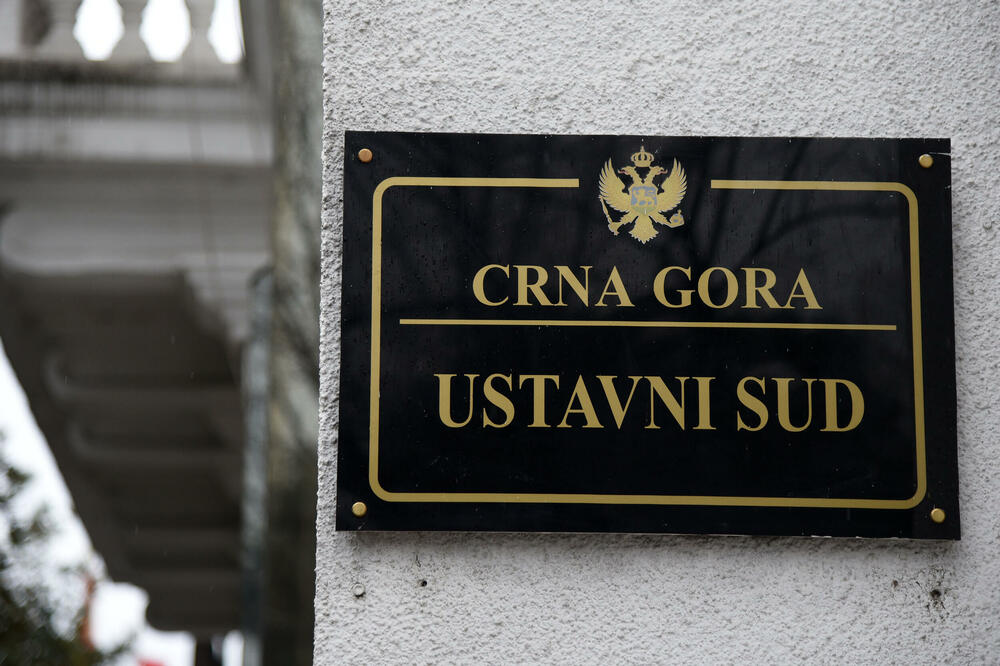Elections cannot be held without the Constitutional Court (US), because otherwise there could be complete chaos and powerlessness in the country, said a recently retired judge of that court. Miodrag Ilicković.
He, in a conversation for Center for Investigative Journalism of Montenegro (CIN-CG), points out that politicians, ever since the constitutional changes in 2013, when a two-thirds or three-fifths majority was introduced for the selection of the most important positions in the judiciary, do not allow power to spill over into those institutions.
Other experts from the field of law, but also from the civil sector, for CIN-CG assess that politicians have continued with the collapse of institutions and the legal order, and that this, unfortunately, is another battle for supremacy in the judiciary.
And while 14 municipalities are preparing to hold elections on October 23, which have already been unconstitutionally postponed once, now due to the impossibility of appealing to the supreme instance, the question of their legitimacy also arises, after the US was left with only three of the seven judges.
For several years now, the election of new judges has been blocked, for the appointment of which a wider political consensus is necessary, as it is necessary for the candidate to receive at least 49 votes in the parliament.

If there are complaints for the US after the election, there could be complete chaos, because the complaining parties could challenge the election results. In such complicated political circumstances, it could further complicate the situation in the country.
However, for the president of the country Milo Đukanović and some analysts think these are not problems that should delay the elections. Đukanović recently said that local elections will be held on October 23.
The blockade of the US not only calls into question the legitimacy of the electoral process, but citizens are also deprived of numerous other rights, because there is no last instance to which they can appeal against the judgments of regular courts, including the violation of basic human rights.
There are a number of significant initiatives before the US, so due to the lack of a quorum, this court cannot decide on the constitutionality of the Basic Treaty, "Zeta laws", the old-age pension of judges and prosecutors, nor on thousands of complaints from citizens...
In addition, not even about the latest initiative regarding whether the president of the country, Milo Đukanović, violated the Constitution by refusing to propose Miodrag Lekić, there is no one to decide.
"The Assembly is obliged to elect US judges", the director of the Center for Democratic Transition (CDT) points out. Milica Kovačević.
She, however, believes that postponing the election is inadmissible, and that US judges should be elected before October 23.

Kovačević clarifies that there is no substitute for US, and that only the highest judicial instance can be appealed against the decision of the State Election Commission (SEC).
Kovačević reminds that the members of parliament do not fulfill the obligations arising from their public office, and for more than two years since the US began to "break down", they have not ensured the functionality of this institution: "They have turned the election of holders of the highest judicial positions into a shameless political trade and in that way directly subordinated the interests of the citizens to their narrow party interests", Kovačević emphasizes.
She points out that she does not know how realistic it is that, in this system of self-interested and, as she says, selfish pursuit of politics and public affairs, the Assembly votes for the judges of the Constitutional Court until the local elections are held.
"Our politicians' speeches are full of well-worn phrases about an independent judiciary, while in reality they are only interested in achieving political control over the judiciary," says the director of the CDT.
The blockade of the court is now only formalized
Iličković emphasizes that this crisis is also the result of many years of behavior by politicians who have led to the fact that this institution does not exist, that it has no independence and no authority.
"The blockade of the Court is essentially now only formalized," Iličković points out for CIN-CG.
He explains that the US has often not been independent and acted as the supreme authority, and that the solution is certainly not to elect one judge, so that the court has a quorum for decision-making.

Iličković points out that the only solution is to elect all of them, i.e. the four missing judges, and they are persons of integrity, not those who will be sympathizers of the parties in power.
"The judge must be in conflict with the authorities. "Politicians can say what they want, but there must be an institution that will bring them back within the constitutional framework with their decisions," says the former US judge.
He adds that it is unacceptable that the politicians, as well as the Court, by not acting on time, have hit the foundations of democracy, so they have now left citizens without legal protection.
He points out that it is crucial, not only for the functioning of the US, but for the entire judiciary to enter essential reforms as soon as possible, of which the security assessment of all holders of judicial institutions, the examination of their property, and lifestyles are particularly important.
"Corrupt personnel should leave the police and the judiciary," concluded a US judge until recently.
Iličković retired on September 13, and since then the US has no quorum for decision-making.
The Parliament of Montenegro elects US judges for 12 years, and their election requires the support of two-thirds (54) or three-fifths (49) of deputies.
Before that, the parliamentary Constitutional Committee should propose four candidates for the missing US judges, and that committee has been unable to agree on the registered candidates for a long time. In the three competitions that were announced, none of the registered candidates received the necessary support.
At the beginning of August, a new competition was announced, and the Board finished hearing the candidates, and in the meantime, two of them dropped out.
The only way for the US to get a chance to work until the upcoming local elections is for the Board to give the green light to the Assembly by the beginning of October, which must elect candidates for those positions by a two-thirds majority. If that doesn't happen, they can only be elected again in mid-November, this time a three-fifths majority is enough.
President of the Constitutional Committee Simonida Kordić did not answer the questions of CIN-CG when they can be expected to vote on the registered candidates for judges of the US and when that decision could come to the plenary of the Assembly.
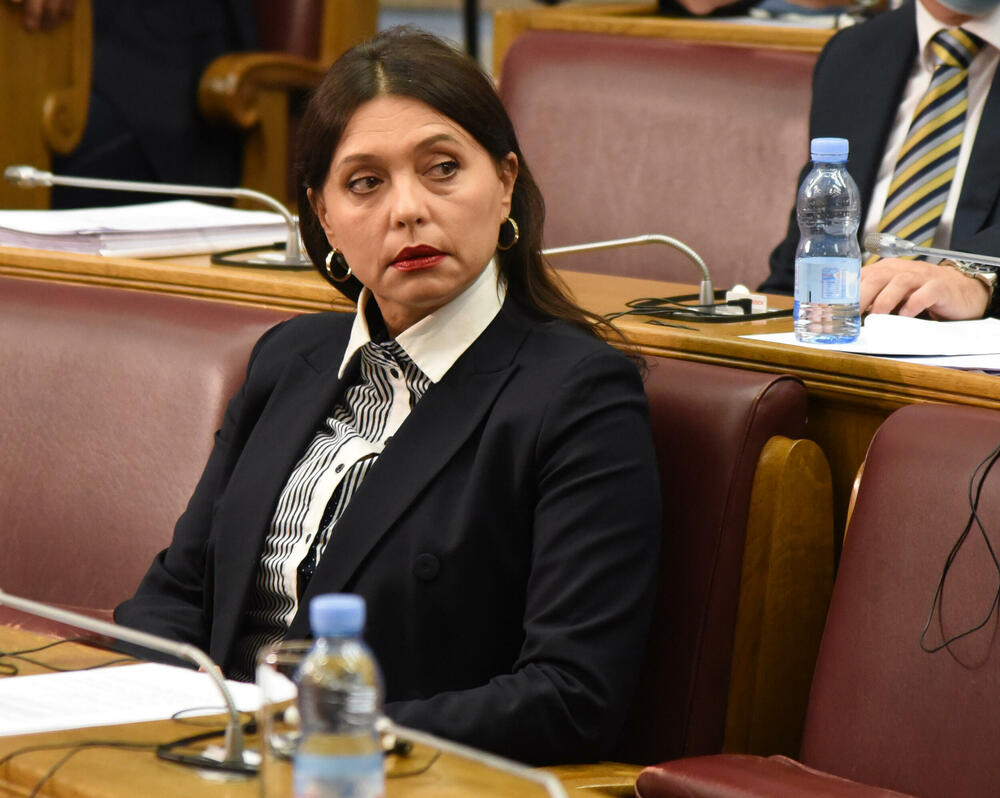
CIN-CG did not even get an answer from Kordić to the question of whether it is possible to reach the necessary majority for the election of US judges, as well as whether the MPs feel responsible for the blockade of the Court.
Urgently appoint people to the judiciary
The Delegation of the European Union (EU) in Montenegro warns CIN-CG that Montenegro should urgently implement key reforms in the area of the rule of law.
"Specifically, the lack of long-awaited judicial appointments has a worrisome impact on the overall functioning of the Montenegrin judiciary, and thus on its ability to deliver justice," the Delegation emphasized.
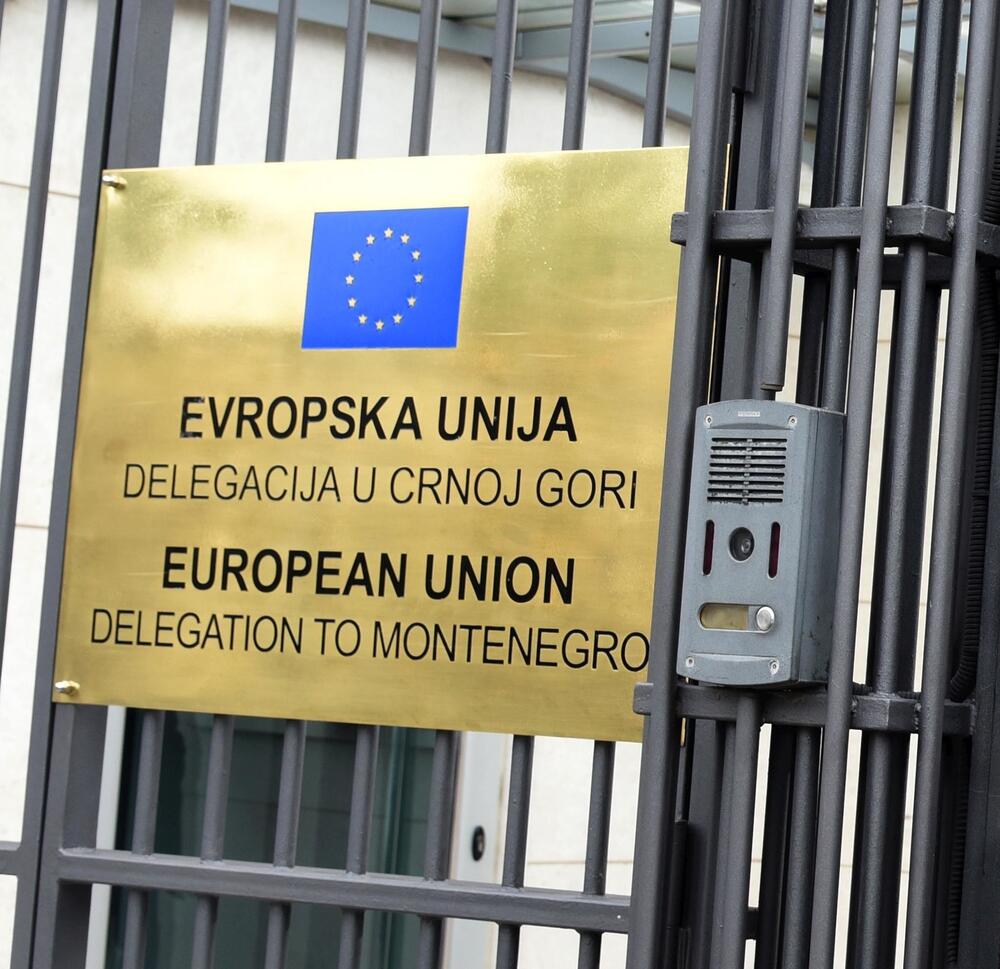
In addition to the blockade of the US, not all the missing members of the Judicial Council have been appointed in Montenegro, the supreme state prosecutor has not been elected, nor the presidents of the Supreme and Commercial Courts, so the key institutions in the judiciary are in an acting state, work with incomplete composition or are blocked.
Attorney Branislav Lutovac emphasizes that the entire legal and political system of Montenegro is currently in an acting state.
"That social context is devastating for the work of state and judicial institutions," Lutovac points out.
It is necessary that all judicial institutions be staffed, the lawyer adds, with independent and professional people and that they be enabled to work in full capacity, deprived of the state and the influence of politics.
The umbrella institution in this sense, he points out, is the US, so it is inadmissible for there to be only three judges in that court, which means that they do not have a quorum to make decisions within their jurisdiction. "It should be borne in mind that the US is the only state body that determines the violation of individual rights and freedoms guaranteed by the Constitution," emphasizes Lutovac.

"The question arises, are elections possible when we have this situation in the US? Formally, they are, because it may happen that after the election there will not be any electoral dispute and there is no need to wait for the decision of the US to verify the election results", he assesses.
But, as he points out, the question is whether this is realistic in polarized social relations. Lutovac believes that the election process should not be entered into until the US is able to decide in its full legal capacity.
"Otherwise, we are entering a zone of legal uncertainty regarding the election results, which would be a legal detour," concludes the lawyer.
Over 3.000 cases are pending before the court
There are currently over 3.000 pending cases before the Constitutional Court, of which more than 90 percent are constitutional appeals.
In the last unofficial document of the European Commission (EC), from May of this year, it is written that the Constitutional Court had a backlog of about 2021 cases in 3.212.
"Of these, 2.967 (about 92 percent) are in the process of constitutional lawsuits for human rights violations," the document says.
And while the number of constitutional appeals is growing, our country, in relation to the number of inhabitants, has the most petitions in the European Court of Human Rights in Strasbourg.
CIN-CG interlocutors are concerned that due to the poor results of the US and the non-existent deadlines in which it decides, it could easily happen that the effectiveness of the constitutional appeal is lost very quickly. The US now has no deadline to make a decision, as the 18-month deadline has been lifted.
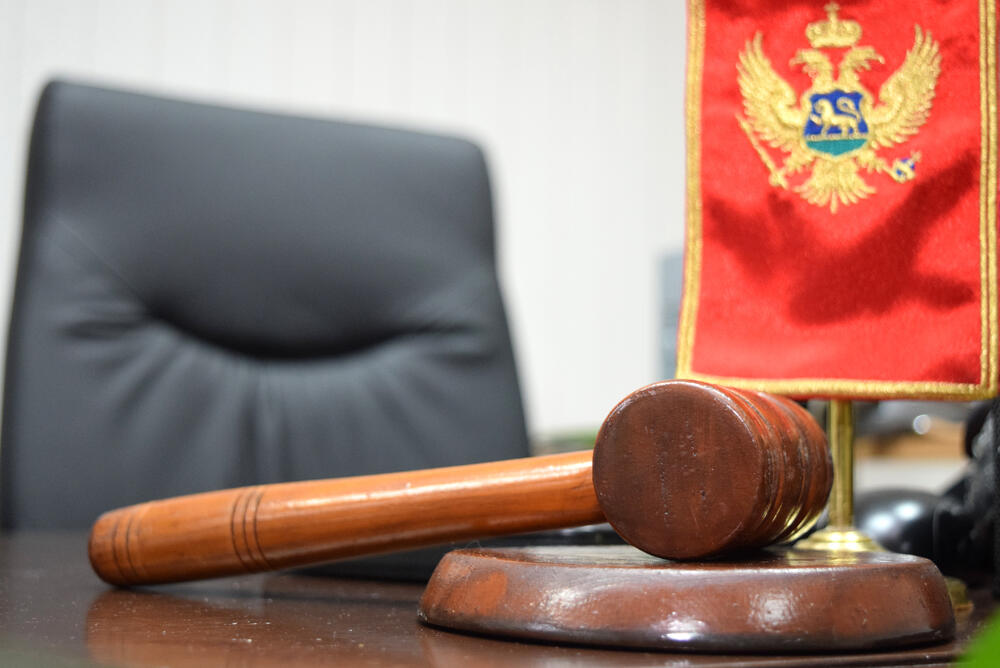
In the US report for 2020, it is written that there has been a tendency to increase the number of constitutional appeals for a whole decade, so in 2007 there were 119, while in 2020 the court received 1.456 of them.
The report also states that in 2020, there were 4.882 cases, which represents the largest number of cases in the work of the Constitutional Court in one year. 1.324 were solved. out of 4.882 cases, 95 percent were constitutional appeals.
During 2020, in 89 percent of cases, the Constitutional Court rejected the constitutional appeal as unfounded. In 11 percent of the complaints that were accepted, it was mostly about the violation of the right to a fair trial, that is, the right to a "reasoned decision".
In 2020, the US decided on four election appeals, of which it rejected two and rejected two for procedural reasons.
The report for 2021 has not been published on the official website of the US. According to CIN-CG information, that report was not adopted, because one judge voted against, so there was no quorum.
Some lawyers do not know what a constitutional appeal is
The fact that the US has been pointing out for years that a large number of constitutional appeals that do not meet the prerequisites for conducting the procedure, due to the lack of expertise of lawyers, is worrisome. This is written in the court report for 2020.

"The Constitutional Court notes that, despite the fact that proceedings on constitutional appeals have been conducted since 2007 and that the Constitutional Court has published on its website a form with instructions for filing a constitutional appeal, a large number of lawyers still do not distinguish between a constitutional appeal, as a special legal means for the protection of human rights and freedoms guaranteed by the Constitution, and regular and extraordinary legal means, which are declared in proceedings before regular courts", the document says.
Contrary to the court's decision, Zeta was separated
In July of this year, the Constitutional Court repealed the Law on Amendments to the Law on Local Self-Government, which postponed local elections in several municipalities to October 23.
Iličković explains that the dysfunctionality of the system can best be seen in that decision.
"The decision of the US came late and did not deal with the consequences caused by such a law", Iličković assesses.
After two and a half months, the US decided on the submitted initiative, and in the meantime, among other things, 14 municipal presidents were unconstitutionally elected.
However, the decision of the US also had to influence the decision on the separation of Zeta.
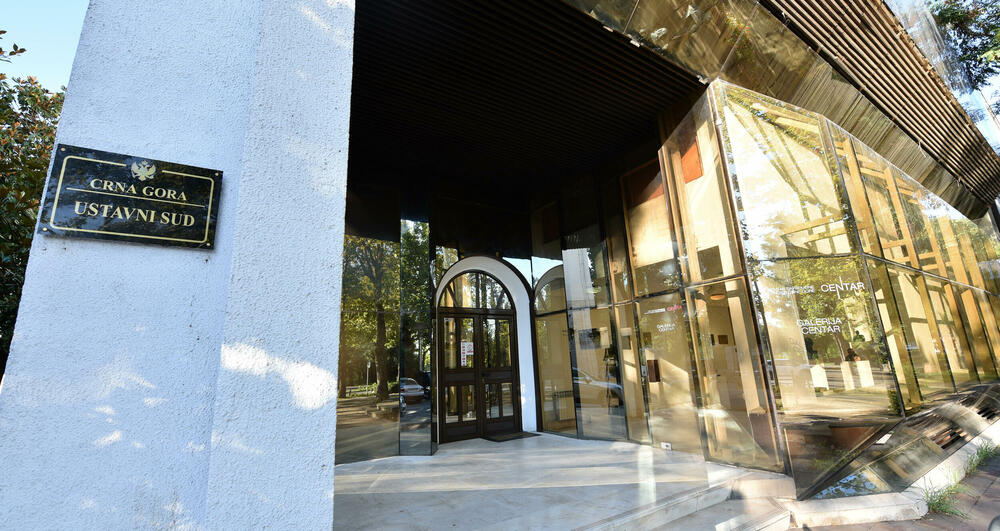
In that decision, among other things, it is written that "the boundaries of electoral units may be changed no later than one year before the election or they must be determined by the constitution or a law of a higher level than ordinary law".
Contrary to the court's decision, changes to the Law on Territorial Organization and the Law on the Capital City, and after the announcement of elections, in August of this year, Zeta became the 25th Montenegrin municipality.
Kovačević: The parties are synchronizing and undermining the electoral system
The issue of the Constitutional Court is only part of the systematic work to undermine democratic elections, which the parties are conducting in sync, Milica Kovačević says.
She reminds that the electoral reform has been blocked for six years, and that the elections are conducted by party-controlled institutions: "And they make it impossible for individuals to passively vote, with an unorganized register of residence and voter list, with media, financial and political influences from abroad, suspicions of financing from illegal sources"...
To all that, as she concluded, they added the unconstitutional postponement of the election and the redrawing of constituencies with the aim of manipulating the outcome of the election.

Bonus video:



